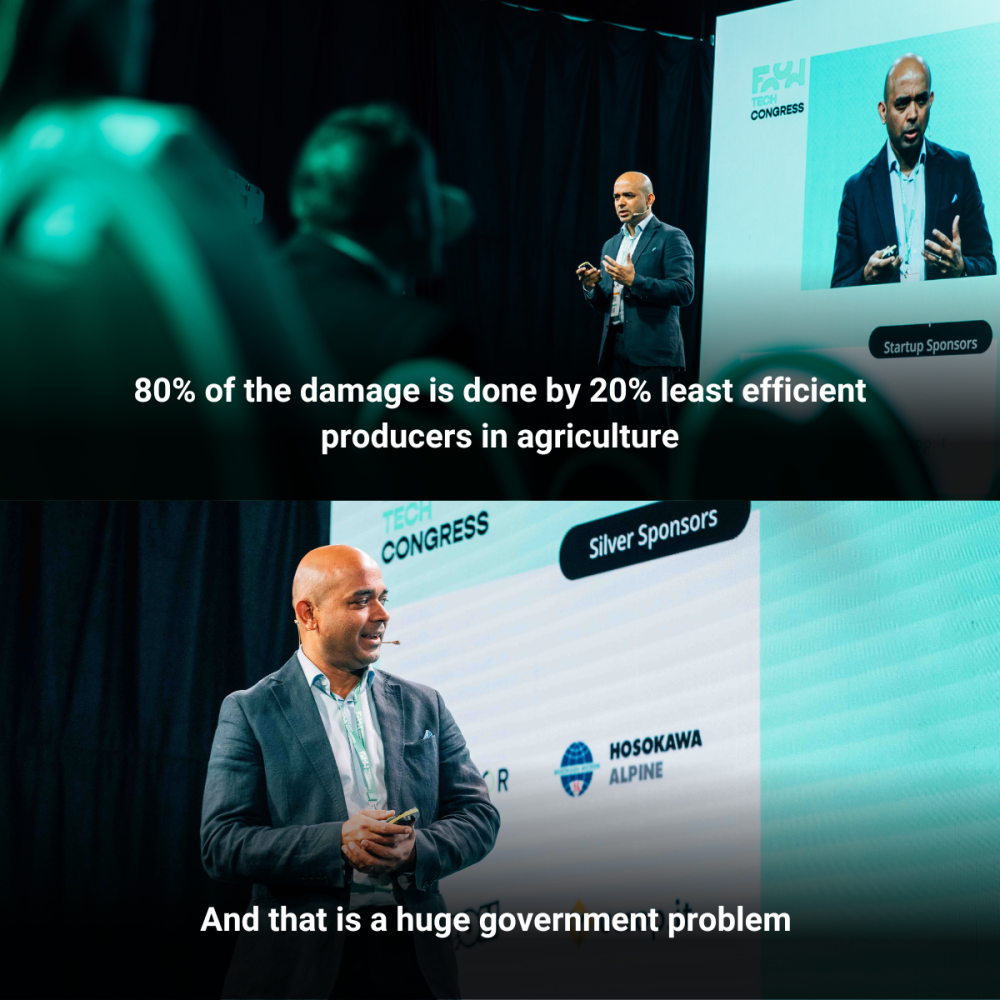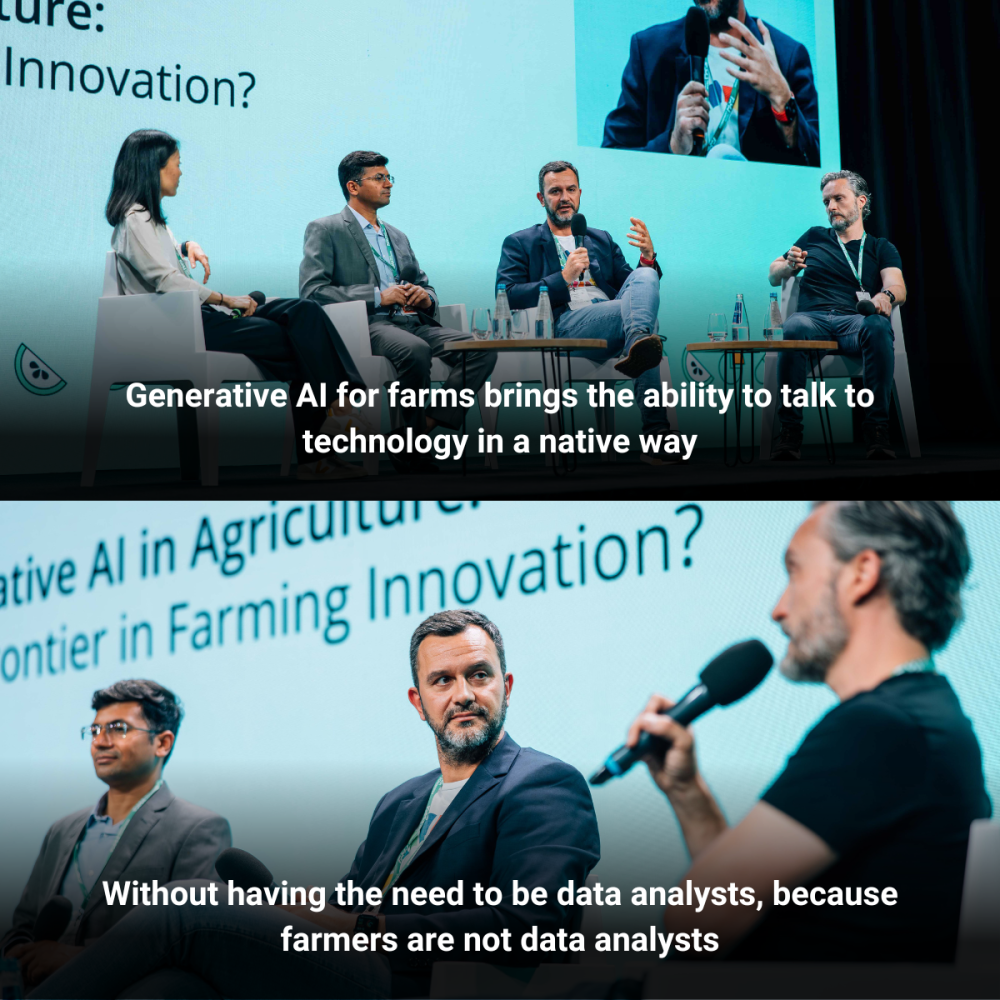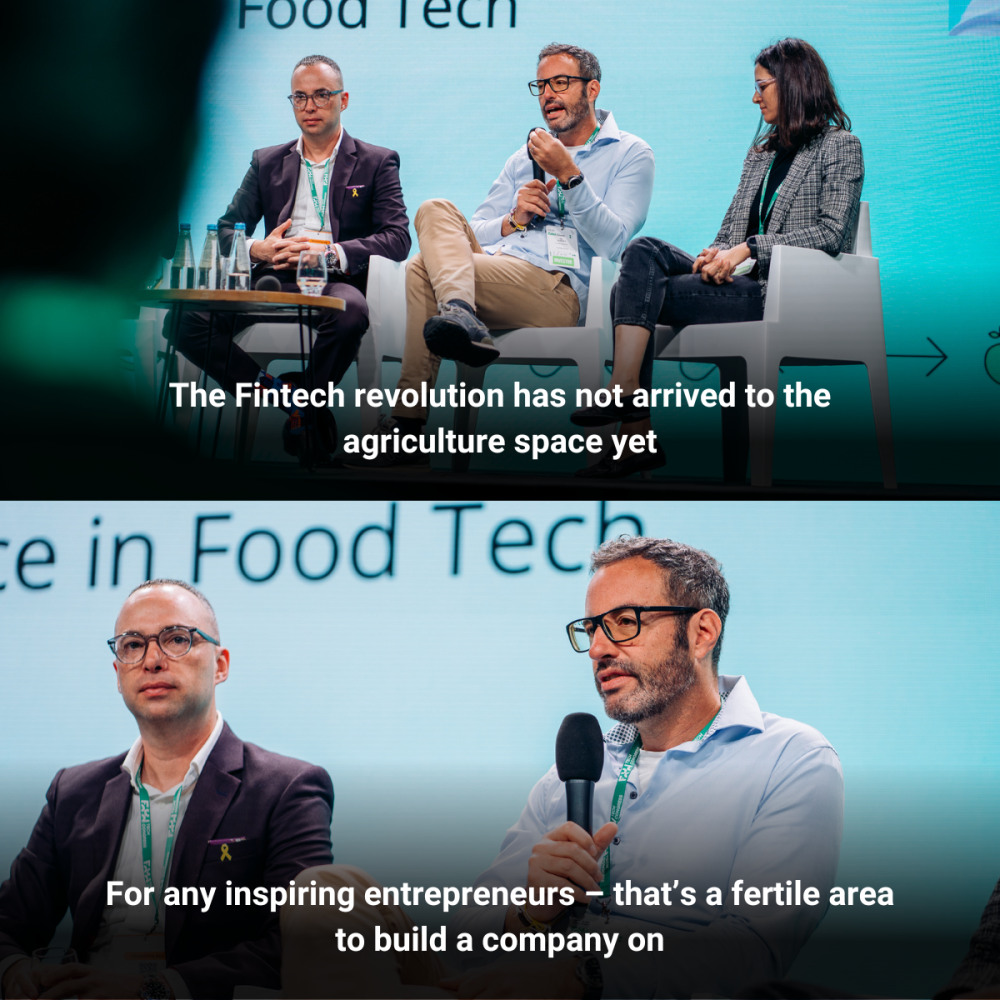Global agri-tech investment reached $16 billion in 2024, according to a 2025 report by AgFunder. While it’s $40 million shy of the 2021 peak and down by 4% from 2023, the upside is that it’s the smallest drop in the last four years. In other words, the industry is settling and getting back on its feet.
The growing revenue is driving big changes. But to keep moving forward, first we need to get a clear picture of where the industry stands today. This newsletter will break down the hurdles holding the AgTech back and highlight the opportunities ahead.
Got your own insights to share? Bring them to the Agri Tech stage at Food Tech Congress.
Caught in the crossfire
Agriculture is both a major driver of the climate crisis – and one of its biggest victims. That was one of the key takeaways from the 2024 Food Tech Congress keynote on “Net-zero transition in food and agriculture” by Paul Benjamin, Director of BloombergNEF. He highlighted a hard truth: while food companies are setting ambitious net-zero goals, emissions in the sector are still moving in the wrong direction.
Smallholder farmers and producers are often underfunded and overlooked. But it’s not just about money. Paul emphasised that real change won’t happen without governments stepping in and fixing policies to enable commercialisation.

Could AI be the saving grace?
Picture this: a farmer pulls out his phone, checks an app, and instantly knows the perfect time to plant his crops. Fast forward, and that same app uses AI to scan drone images, spotting early signs of crop disease before it spreads. The result? Healthier crops, less guesswork, and bigger yields.
Sounds futuristic? Not anymore. The AI in agriculture market is already worth $269 million and is expected to reach $2012 billion by 2034, growing at a solid 25.02% CAGR annually.
At the “Generative AI in agriculture” panel, speakers highlighted many positive attributes this novel technology brings to the industry. Matija Zulj, CEO and Founder of AGRIVI, emphasised that:

By simplifying complex tools, AI opens the door for more innovation to come into the industry and speed up the adoption of new technologies. In the long run, this doesn’t just mean better farming – it means a more sustainable future, with smarter resource use and a real impact on tackling climate change.
New tech – new capital
Capital is flowing back into agri-tech – and investors are paying attention. After the market slowdown in 2022, momentum is building again. This shift didn’t go unnoticed at Food Tech Congress 2024, the panel on “Cultivating capital in food and agri tech” explored how and where that investment is picking up.
Gil Horsky🎗️, Founding Partner at FLORA Ventures, reminded us the importance of zooming out and looking at the bigger picture. Agri-tech doesn’t exist in a vacuum – adjacent industries can play a key role in driving capital into (and out of) the sector. He also pointed to untapped opportunities where the right partnerships could unlock serious value.
Cross-sector collaboration might just be the secret ingredient:

How can you make a difference?
The AgTech industry is at a turning point, with new technologies, investments, and policies all playing key roles in its future. As the sector faces these challenges and opportunities, staying informed and connected is crucial for shaping the next chapter of agriculture. That’s why Food Tech Congress is launching a stage dedicated to agri-tech. Expect high quality content, actionable insights and connections that matter.


